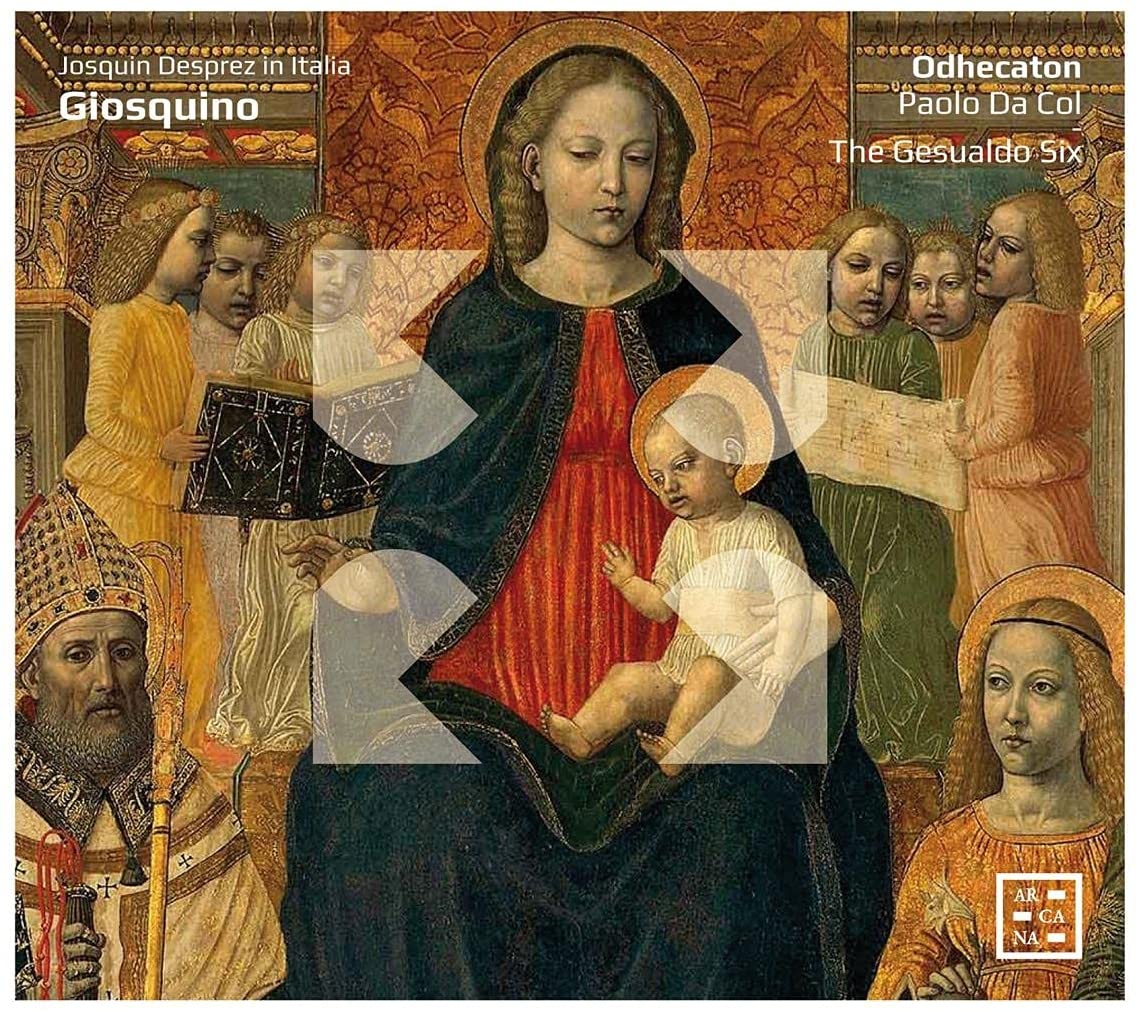Josquin Desprez in Italia
Odhecaton, Paolo Da Col, The Gesualdo Six, [La Reverdie, La Pifarescha]
77:17
Arcana A489
Click HERE to buy this recording on amazon.co.uk
[Doing so supports the artists, the record company and keeps this site available – if no-one buys from these sponsored links, this ad-free site will disappear…]
Coinciding as it does with the reopening of the Burrell Collection in Glasgow, with its magnificent Renaissance tapestry featuring Hercules, dux Ferrara, one would like to think this similarly magnificent recording featuring Josquin’s Mass Hercules dux Ferrariae might have found its way into the gift shop. If you like your Josquin big and muscular, this is the recording for you. Looking at things through musicological glasses, we know that the ducal court of Ferrara possessed the musical resources to stage events of this stature, so the only consideration is whether Josquin’s music is effective, performed by these large forces. I think that the approach here, using as many as twenty voices for full sections, with solo voices emerging to perform the more intricate passages works extremely well. The otherwise detailed programme notes are inexplicably uninformative about the role played by the wind instruments – I am sure that the voices are supported by cornets and sackbuts in several tracks, and one photo of the recording sessions would seem to confirm this. If this is indeed the case, the blend of voices and brass is exemplary, and again highly effective. I have to say, I felt the two short instrumental tracks sound a little out of place in this programme of largescale sacred music. The programme ends with Josquin’s extraordinary 12-part setting of Inviolata, integra et casta in which all the vocal and instrumental forces combine in a dramatic performance tour de force. I have recently suggested that this work dates from later in Josquin’s life, and through his pupils kicked off the early 16th-century vogue for works in many voice parts (Brumel, Gombert, Carver – www.earlymusicreview.com/
D. James Ross
